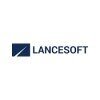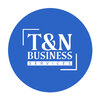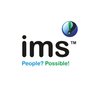
i
Teamware
Solutions
Filter interviews by
Teamware Solutions Interview Questions and Answers
26 Interview questions
My framework is a robust Selenium-based automation suite designed for efficient testing and maintainability.
Modular Architecture: The framework is built using a modular approach, allowing easy addition of new test cases and components.
Page Object Model (POM): Each web page is represented as a class, encapsulating the page elements and actions, e.g., LoginPage class for login functionalities.
TestNG Integration: We ...
Yes, I have experience with SQL and PL/SQL, essential for database querying and manipulation in software testing.
SQL (Structured Query Language) is used for managing and querying relational databases.
PL/SQL (Procedural Language/SQL) is an extension of SQL that allows for procedural programming.
Example of SQL: SELECT * FROM users WHERE age > 30;
Example of PL/SQL: DECLARE v_count NUMBER; BEGIN SELECT COUNT(*) INT...
DHCP (Dynamic Host Configuration Protocol) automates IP address assignment in networks, simplifying device connectivity.
DHCP assigns IP addresses dynamically, reducing manual configuration.
It operates on a client-server model, where clients request IPs from a DHCP server.
Example: A laptop connects to Wi-Fi and receives an IP address automatically.
DHCP can also provide other network configuration details, like subn...
Movement type 701 is used for goods issue for sales order
Movement type 701 is used to post goods issue for sales order
It reduces the stock quantity in the system
It is typically used in the context of delivering goods to customers against sales orders
What people are saying about Teamware Solutions





Security measures for Azure cloud services include network security groups, encryption, multi-factor authentication, and regular security audits.
Implement network security groups to control inbound and outbound traffic to virtual machines
Enable encryption at rest and in transit to protect data
Utilize multi-factor authentication for added security when accessing resources
Regularly conduct security audits and assess...
AI is the simulation of human intelligence processes by machines, especially computer systems.
AI involves the development of algorithms that can perform tasks that typically require human intelligence.
Examples of AI include speech recognition, image recognition, and natural language processing.
AI can be categorized into narrow AI (focused on a specific task) and general AI (capable of performing any intellectual t...
Azure is a cloud computing platform by Microsoft that offers a variety of services for building, deploying, and managing applications.
Azure is a public cloud computing platform that provides services such as virtual machines, databases, AI, and IoT.
It allows users to build, deploy, and manage applications through Microsoft's data centers.
Azure offers scalability, flexibility, and cost-effectiveness for businesses ...
A firewall is a network security system that monitors and controls incoming and outgoing network traffic based on predetermined security rules.
Acts as a barrier between a trusted internal network and untrusted external network
Filters network traffic based on rules set by the administrator
Helps prevent unauthorized access to or from a private network
Examples include hardware firewalls, software firewalls, and cloud...
A proxy is an intermediary server that acts as a gateway between a user and the internet, providing anonymity and security.
A proxy server can be used to access websites anonymously by masking the user's IP address.
Proxies can also be used to bypass geo-restrictions on certain websites or services.
There are different types of proxies such as HTTP proxies, SOCKS proxies, and transparent proxies.
Joins in SQL are used to combine rows from two or more tables based on a related column between them.
Joins are used to retrieve data from multiple tables based on a related column
Common types of joins include INNER JOIN, LEFT JOIN, RIGHT JOIN, and FULL JOIN
Syntax for joins typically involves specifying the tables to join, the columns to join on, and any additional conditions
Teamware Solutions Interview Experiences
58 interviews found
(2 Questions)
- Q1. Fi ad SD functional integration
- Q2. What was the work of the movement type of 701
- Ans.
Movement type 701 is used for goods issue for sales order
Movement type 701 is used to post goods issue for sales order
It reduces the stock quantity in the system
It is typically used in the context of delivering goods to customers against sales orders
Aptitude and coding logis asked
Few coding questions and MCQ based
(1 Question)
- Q1. About project and last change request i did
(1 Question)
- Q1. Asked about companies and experiences
(2 Questions)
- Q1. What is firewall
- Ans.
A firewall is a network security system that monitors and controls incoming and outgoing network traffic based on predetermined security rules.
Acts as a barrier between a trusted internal network and untrusted external network
Filters network traffic based on rules set by the administrator
Helps prevent unauthorized access to or from a private network
Examples include hardware firewalls, software firewalls, and cloud-base...
- Q2. What is proxy
- Ans.
A proxy is an intermediary server that acts as a gateway between a user and the internet, providing anonymity and security.
A proxy server can be used to access websites anonymously by masking the user's IP address.
Proxies can also be used to bypass geo-restrictions on certain websites or services.
There are different types of proxies such as HTTP proxies, SOCKS proxies, and transparent proxies.
Skills evaluated in this interview
I appeared for an interview in May 2025, where I was asked the following questions.
- Q1. Can you provide a self-introduction?
- Ans.
I am a dedicated computer operator with a strong background in IT support and data management, eager to contribute to your team.
Education: Bachelor's degree in Computer Science.
Experience: 3 years as a computer operator at XYZ Corp, managing daily operations.
Skills: Proficient in troubleshooting hardware and software issues.
Certifications: CompTIA A+ and Microsoft Certified Professional.
Teamwork: Collaborated with IT t...
- Q2. What is the purpose for which we hired you?
- Ans.
I was hired to ensure efficient operation of computer systems, manage data processing, and support users in their technical needs.
Monitor and maintain computer systems to ensure optimal performance.
Troubleshoot hardware and software issues, like resolving printer errors.
Assist users with technical support, such as guiding them through software installations.
Manage data backups and recovery processes to prevent data los...
- Q3. Except salary package
- Q4. Tell about your strength
- Ans.
My strength lies in my attention to detail, problem-solving skills, and ability to work efficiently under pressure.
Attention to Detail: I consistently double-check my work to minimize errors, ensuring data accuracy.
Problem-Solving Skills: I enjoy troubleshooting technical issues, like resolving software glitches quickly.
Efficiency Under Pressure: During peak hours, I prioritize tasks effectively to maintain smooth oper...
Interview Preparation Tips
I applied via Naukri.com and was interviewed before May 2021. There were 4 interview rounds.

(2 Questions)
- Q1. Explain about yourself
- Ans.
Experienced IT Recruiter with a passion for connecting top talent with leading tech companies.
Over 5 years of experience in IT recruitment
Strong understanding of technical roles and requirements
Proven track record of successfully placing candidates in top tech companies
Excellent communication and negotiation skills
Passionate about building relationships and networking within the tech industry
- Q2. Key responsiblity about ur experience
- Ans.
Key responsibility in my experience is sourcing, screening, and interviewing candidates for IT positions.
Sourcing candidates through job boards, social media, and networking events
Screening resumes and conducting initial phone interviews
Coordinating interviews with hiring managers
Maintaining candidate database and tracking progress
Providing feedback to candidates and closing offers
Ensuring a positive candidate experien...
Explain about situation were new employee is not satisfied with all policies how u convince him to stay in company
(2 Questions)
- Q1. Salary discussion
- Q2. Location and notice period
(1 Question)
- Q1. What is joins with syntax
- Ans.
Joins in SQL are used to combine rows from two or more tables based on a related column between them.
Joins are used to retrieve data from multiple tables based on a related column
Common types of joins include INNER JOIN, LEFT JOIN, RIGHT JOIN, and FULL JOIN
Syntax for joins typically involves specifying the tables to join, the columns to join on, and any additional conditions
(3 Questions)
- Q1. Discussion about whole processes of SAP
- Q2. Discussion about the cross module functionality
- Q3. Discussion about technical functionality
(2 Questions)
- Q1. Discussion about Salary
- Q2. Discussion about work culture
I appeared for an interview in Apr 2025, where I was asked the following questions.
- Q1. Tell me about your self
- Q2. About your Experience
Senior Software Test Engineer Interview Questions & Answers
posted on 8 Apr 2025
I appeared for an interview in Mar 2025, where I was asked the following questions.
- Q1. JD Related Question with Testing workflow
- Q2. Testing Type and how to handle all testing modules
- Ans.
Understanding various testing types and managing testing modules effectively is crucial for software quality assurance.
Unit Testing: Testing individual components for correctness, e.g., testing a function that calculates tax.
Integration Testing: Ensuring that combined components work together, e.g., testing a payment gateway with an e-commerce platform.
System Testing: Validating the complete and integrated software pro...
Interview Preparation Tips
I appeared for an interview in Feb 2025, where I was asked the following questions.
- Q1. Basic questions related end to end recruitment
- Q2. Can you provide a self-introduction, including details about your previous company?
Teamware Solutions Interview FAQs
The duration of Teamware Solutions interview process can vary, but typically it takes about less than 2 weeks to complete.
Tell us how to improve this page.
Teamware Solutions Interviews By Designations
- Teamware Solutions Technical Support Engineer Interview Questions
- Teamware Solutions Plsql Developer Interview Questions
- Teamware Solutions Talent Acquisition Executive Interview Questions
- Teamware Solutions Software Developer Interview Questions
- Teamware Solutions SAP Consultant Interview Questions
- Teamware Solutions Senior Business Analyst Interview Questions
- Teamware Solutions System Engineer Interview Questions
- Teamware Solutions Software Engineer Interview Questions
- Show more
Interview Questions for Popular Designations
Overall Interview Experience Rating
based on 59 interview experiences
Difficulty level
Duration
Interview Questions from Similar Companies
Teamware Solutions Reviews and Ratings
based on 730 reviews
Rating in categories
7-15 Yrs
Not Disclosed
8-15 Yrs
Not Disclosed
6-10 Yrs
Not Disclosed
|
Talent Acquisition Executive
251
salaries
| ₹1.8 L/yr - ₹4.5 L/yr |
|
Software Developer
94
salaries
| ₹4.5 L/yr - ₹10 L/yr |
|
Software Engineer
88
salaries
| ₹4.5 L/yr - ₹9.2 L/yr |
|
Senior Software Engineer
85
salaries
| ₹5.4 L/yr - ₹12.4 L/yr |
|
Information Technology Recruiter
55
salaries
| ₹1.9 L/yr - ₹4 L/yr |
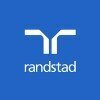
Randstad
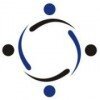
Team Lease
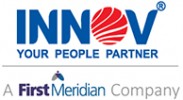
Innovsource Services

IMPACT Infotech
- Home >
- Interviews >
- Teamware Solutions Interview Questions


